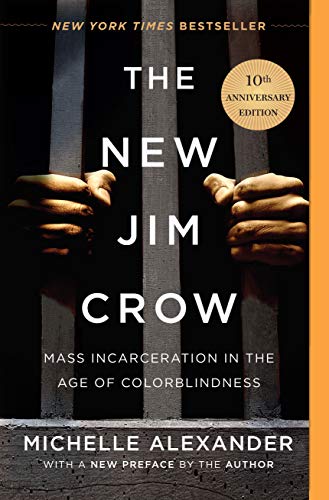School of Education Common Read 2022
Join our community of readers!
The SoE common read is an opportunity for new students to engage in the intellectual and community building experience of reading and discussing a common book. This is the first year the School of Education is offering the Common Read Program for incoming SoE students.
All undergraduate Education majors at the School of Education on the IU Bloomington campus should read the chosen book during the summer before classes begin. Students are encouraged to read the book, as it may appear in various education courses. In addition to coursework, multiple events will be offered throughout the year in relation to the book. The common read will also provide you with something in common with your peers and SoE faculty from the beginning of the school year.
Incoming SoE Direct Admit students will receive a free copy of the School of Education Common Read book. The free ebook can be accessed through IUCAT.
2022 Common Read Book Selection
The New Jim Crow: Mass Incarceration in the Age of Color Blindness
By Michelle Alexander
From The New Jim Crow Official Website: "As the United States celebrates its “triumph over race” with the election of Barack Obama, the majority of black men in major urban areas are under correctional control or saddled with criminal records for life. Jim Crow laws were wiped off the books decades ago, but today an extraordinary percentage of the African American community is warehoused in prisons or trapped in a parallel social universe, denied basic civil and human rights—including the right to vote; the right to serve on juries; and the right to be free of legal discrimination in employment, housing, access to education and public benefits. Today, it is no longer socially permissible to use race explicitly as a justification for discrimination, exclusion, and social contempt. Yet as civil-rights-lawyer-turned-legal-scholar Michelle Alexander demonstrates, it is perfectly legal to discriminate against convicted criminals in nearly all the ways in which it was once legal to discriminate against African Americans. Once labeled a felon, even for a minor drug crime, the old forms of discrimination are suddenly legal again. In her words, “we have not ended racial caste in America; we have merely redesigned it.”
Alexander shows that, by targeting Black men through the War on Drugs and decimating communities of color, the U.S. criminal justice system functions as a contemporary system of racial control, even as it formally adheres to the principle of colorblindness.
The New Jim Crow challenges the civil rights community—and all of us—to place mass incarceration at the forefront of a new movement for racial justice in America."
Michelle Alexander
From The New Jim Crow Official Website: "Michelle Alexander is a highly acclaimed civil rights lawyer, advocate, legal scholar and author of The New Jim Crow: Mass Incarceration in the Age of Colorblindness. Over the years, Alexander has taught at a number of universities, including Stanford Law School, where she was an associate professor of law and directed the Civil Rights Clinic. In 2005, Alexander won a Soros Justice Fellowship that supported the writing of The New Jim Crow and accepted a joint appointment at the Kirwan Institute for the Study of Race and Ethnicity and the Moritz College of Law at The Ohio State University. Currently she is a visiting professor at Union Theological Seminary in New York City and a contributing opinion writer for The New York Times."
“Two years after Obama’s election, Alexander put the entire criminal justice system on trial, exposing racial discrimination from lawmaking to policing to the denial of voting rights to ex-prisoners. This bestseller struck the spark that would eventually light the fire of Black Lives Matter.” —Ibram X. Kendi, The New York Times
Location:


